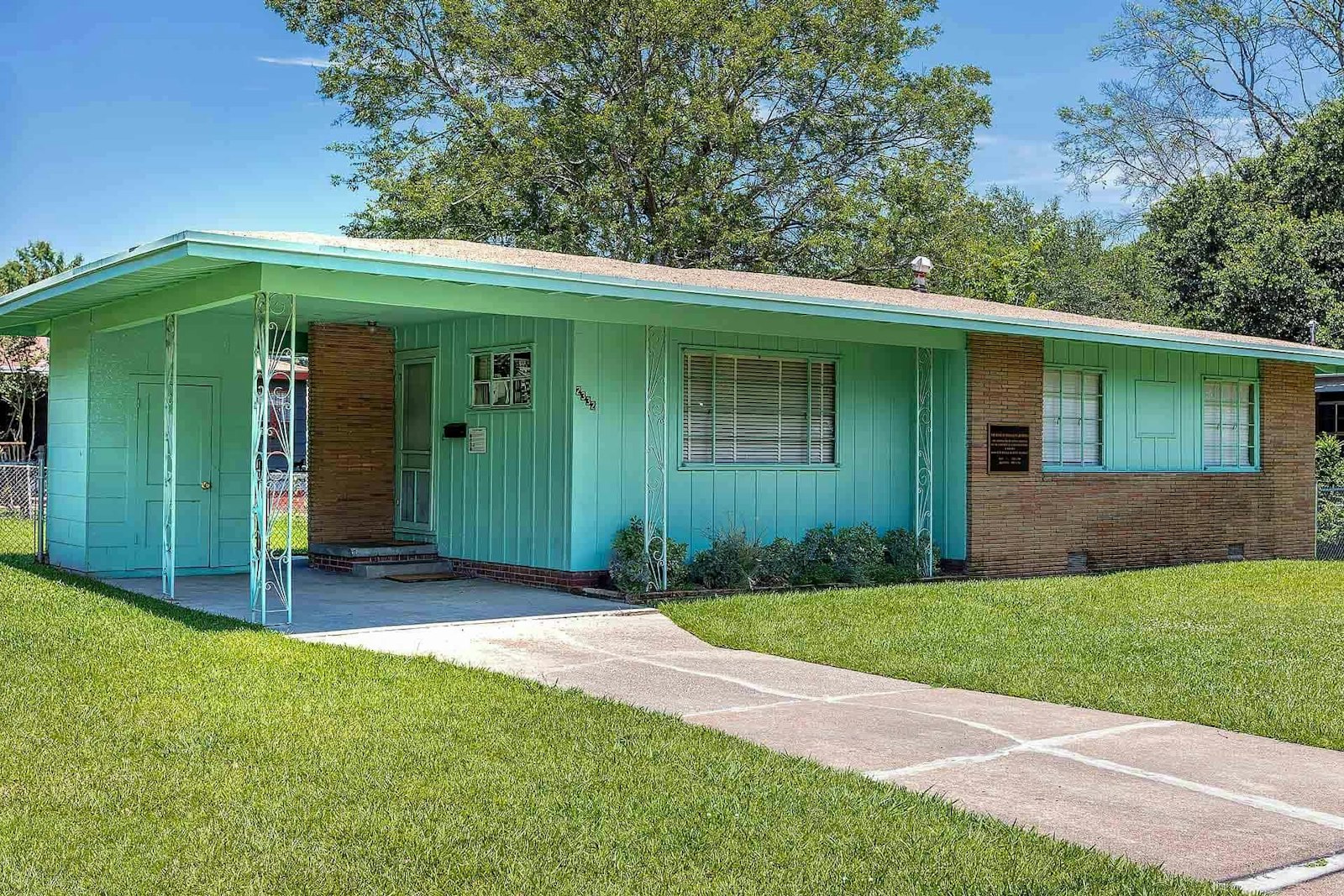
.
.
Medgar and Myrlie Evers Home National Monument
The Medgar and Myrlie Evers Home National Monument commemorates the legacies of two civil rights activists who, from their small, three-bedroom ranch home, devoted their lives to ending racial injustice against Black Americans through local and national activism.
Medgar Evers served in the U.S. Army during World War II, fighting on the beaches of Normandy. Upon his return from the war, Medgar married his classmate at Alcorn State University, Myrlie Beasley, and got involved with the Regional Council of Negro Leadership (RCNL), a civil rights and pro self-help organization. Medgar applied to the then-segregated law school at the University of Mississippi in 1954, and when his application was rejected, became the focus of a NAACP campaign to desegregate the school. Medgar and Myrlie opened and managed the first NAACP Mississippi State Office and lived under constant threats as they fought against racial inequality, leading boycotts, organizing voter registration drives, and investigating acts of violence against African Americans, including the 1955 murder of Emmett Till.
On June 12, 1963, Medgar Evers was murdered in the carport of their home. Medgar's death would become one of the events that led to the eventual passage of the Civil Rights Act of 1964; however, Myrlie did not see justice for the murder of her husband until 31 years later. Myrlie – an author, lecturer, and educator – has continued her activism, becoming one of the first African American women to run for Congress and eventually serving as chairwoman of the NAACP.
The National Park Foundation (NPF) was instrumental in establishing this monument – through a grant to the National Park Service, NPF provided the funds necessary to acquire the Evers’ property from Tougaloo College.
Park Updates
-
UpdateNPF Invests $4.6 Million to Tell a More Complete American Story
-
UpdateNPF to Support Youth and Community Fishing Experiences in Parks Across the Country
-
UpdateNPF’s ParkVentures Program Awards $2.2 Million to Affinity Groups
-
UpdateSupporting the Opening of the Medgar and Myrlie Evers Home National Monument
-
UpdateInaugural Cohort of Inclusive Storytelling Grantees Announced
-
UpdateWorking Together for the Future of Parks
-
UpdateThe Incredible Work of HBCUI Interns in Parks